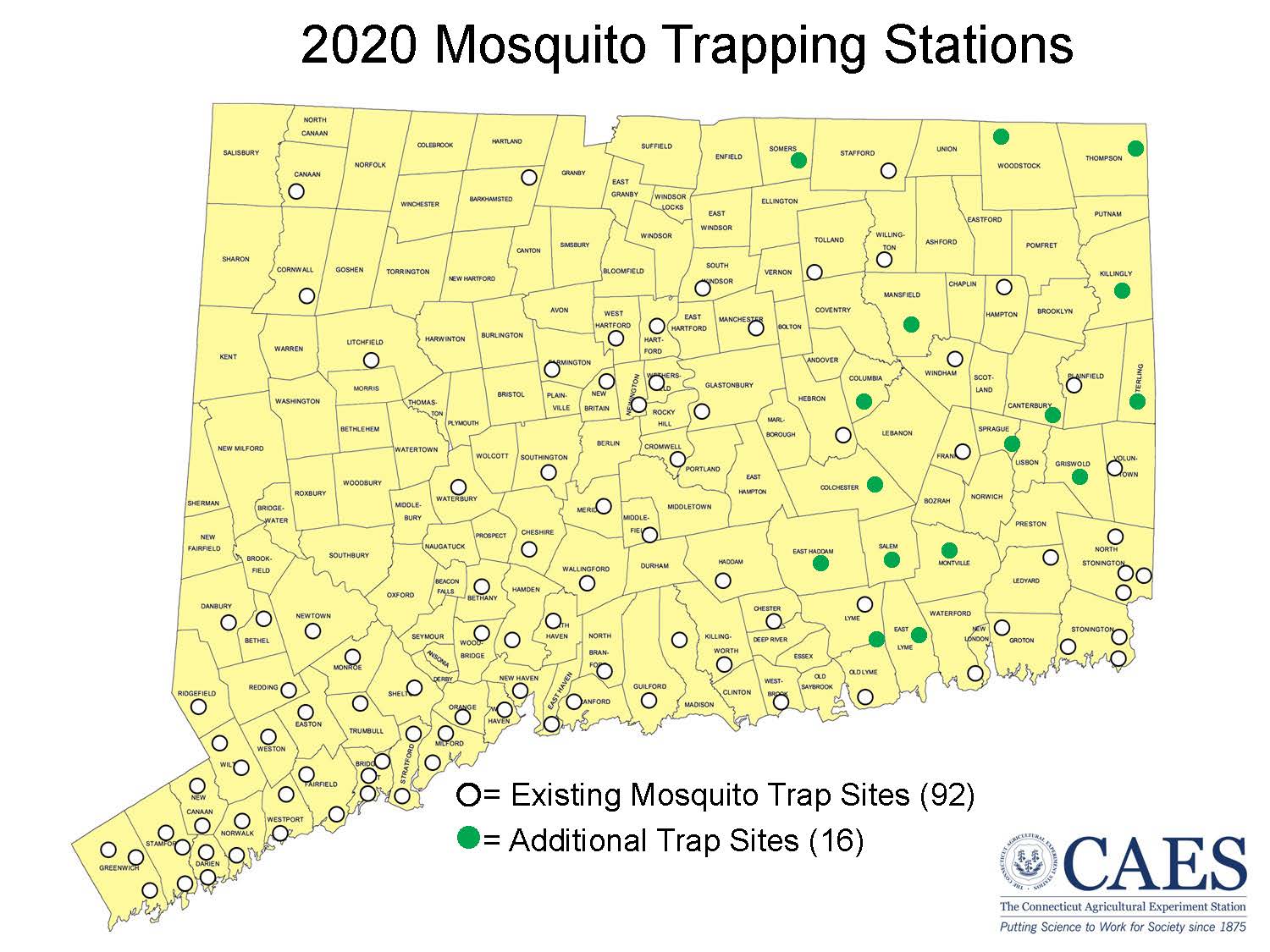Mosquito-Borne Diseases

Although most kinds of mosquitoes are just nuisance mosquitoes, some kinds of mosquitoes can cause disease or, in rare cases, cause death. Mosquito-borne diseases are those spread by the bite of an infected mosquito. Diseases that are spread to people by mosquitoes include Eastern Equine Encephalitis (EEE), West Nile virus, Zika virus, Chikungunya virus, dengue, malaria, and others.
Mosquito Trapping Stations

The Connecticut Agricultural Experiment Station (CAES), a separate state agency, is responsible for trapping, identifying, and testing mosquitoes for encephalitis viruses.
The map to the right depicts the 92 existing mosquito trap stations, including one in Shelton, as well as new trap sites added in response to the increased presence of EEE in 2019. Download a PDF list of the Mosquito Trap Stations here.
Starting the week of June 15, 2020, the State of Connecticut Mosquito Trapping and Arbovirus Testing Program will publish weekly reports with the results of the trapping stations including the town, trap site, number of mosquitoes trapped, testing results, virus(es) identified, mosquito species identified with positive samples, and the date the sample was collected. The main viruses typically identified include West Nile virus (WNV), Eastern Equine Encephalitis virus (EEE), and Jamestown Canyon virus (JC). To view the weekly reports, please visit the CAES website: https://portal.ct.gov/CAES/Mosquito-Testing/Introductory/State-of-Connecticut-Mosquito-Trapping-and-Arbovirus-Testing-Program.